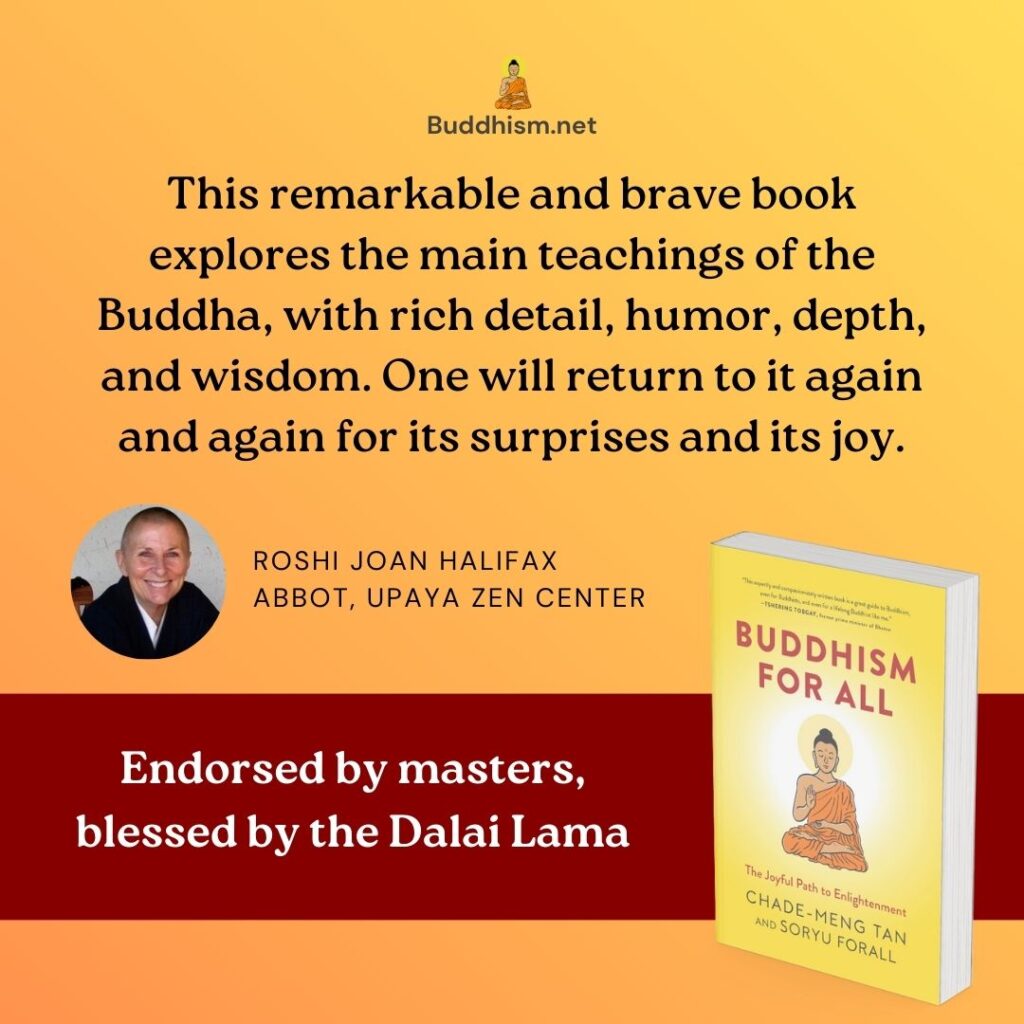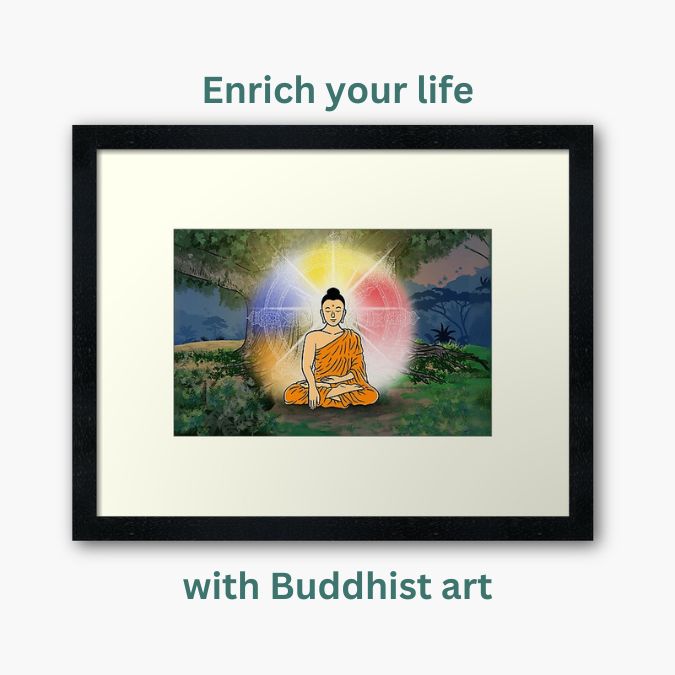
In May 1998, in New York City, there was a historic dialog between two highly revered masters from two different sects of Buddhism. One was the Dalai Lama, the leader of Tibetan Buddhism, the other was the Chinese Zen Master Sheng Yen. They were sharing a stage together for the first time.
The topics discussed were fascinating. The way the discussion played out was equally eye-opening. As expected, each master often started with positions congruent with their sectarian party lines, but they also quickly arrived at an agreement. One major topic, for example, was whether enlightenment is “sudden” or “gradual”. Both sects have opposing traditional positions, but both the Dalai Lama and Sheng Yen made clear, each in his own way, that there is no real contradiction between the sudden and gradual approaches.
Even when there were genuine differences, there was no tension. For example, Sheng Yen said that in Zen, the step-by-step development of dhyāna (the Sanskrit word for jhāna) is not emphasized, instead the emphasis is placed on the direct experience of emptiness, whereas the Dalai Lama said that Tibetan Buddhism can be viewed as a “sophisticated development of dhyāna practice.” Both masters noddingly accepted the other sect’s approach as different but equally valid.
Even more instructive is the warmth and mutual respect between the two masters. Sheng Yen started his speech by saying these two sects of Buddhism are “really like the separated children of one mother”, and then praising the “rich explication of Dharma and detailed elaboration of doctrine” in Tibetan Buddhism. Similarly, the Dalai Lama praised Sheng Yen’s work and acknowledged the contribution of Chinese Zen to Tibetan Buddhism in its early stage of development.
Even more impressive is how the two masters behaved together. Though they only met a few times before, they looked at each other as if they were beloved old friends. They also made gentle fun of themselves and each other. The older Sheng Yen joked that even though he admired the Dalai Lama’s teachings, he himself was too old to be a good student. When Sheng Yen was speaking, the Dalai Lama interrupted him asking, “Can I ask a question?” Sheng Yen said, “You can ask when I’m finished.” And the Dalai Lama replied with a huge grin, “If I wait until you’re finished, I’m going to forget my question.” Everybody laughed out loud. Sheng Yen let the Dalai Lama ask his question. At the end of the talk, they walked off the stage holding hands.[1]
Wow.
Despite how friendly true Buddhist masters are to each other, we still have to wonder: how did we go from unified early Buddhism to sectarian Buddhism in the first place? And, more importantly, what is a good Buddhist to do about sects? That is the topic of our upcoming discussion.
If you take only one thing away from this discussion, it is that as fascinatingly diverse as the different Buddhist sects appear to be, they all share the common core teachings that are contained in this website. If you take a second thing away, it is that despite all our apparent differences, we are really one big family.
Activities
- Reflect on this post with Angela:
- What inspiring qualities did you notice from the two teachers in their interaction? How do you think you can also practice and cultivate these qualities yourself?
- For me, I felt very encouraged by the heartwarming display between two esteemed spiritual leaders in different lineages of Buddhism. I saw true selflessness and a pure intention to benefit others and it is a reminder for me to also check my own intention daily.
References
[1] The transcript is available as a book titled Meeting of Minds: A Dialogue on Tibetan and Chinese Buddhism, Dharma Drum Publications (1999). Sadly, they edited out all the joking and friendly bantering between the two masters. An edited video recording with Chinese subtitles can be found on YouTube here.
Artwork by Colin Goh.


